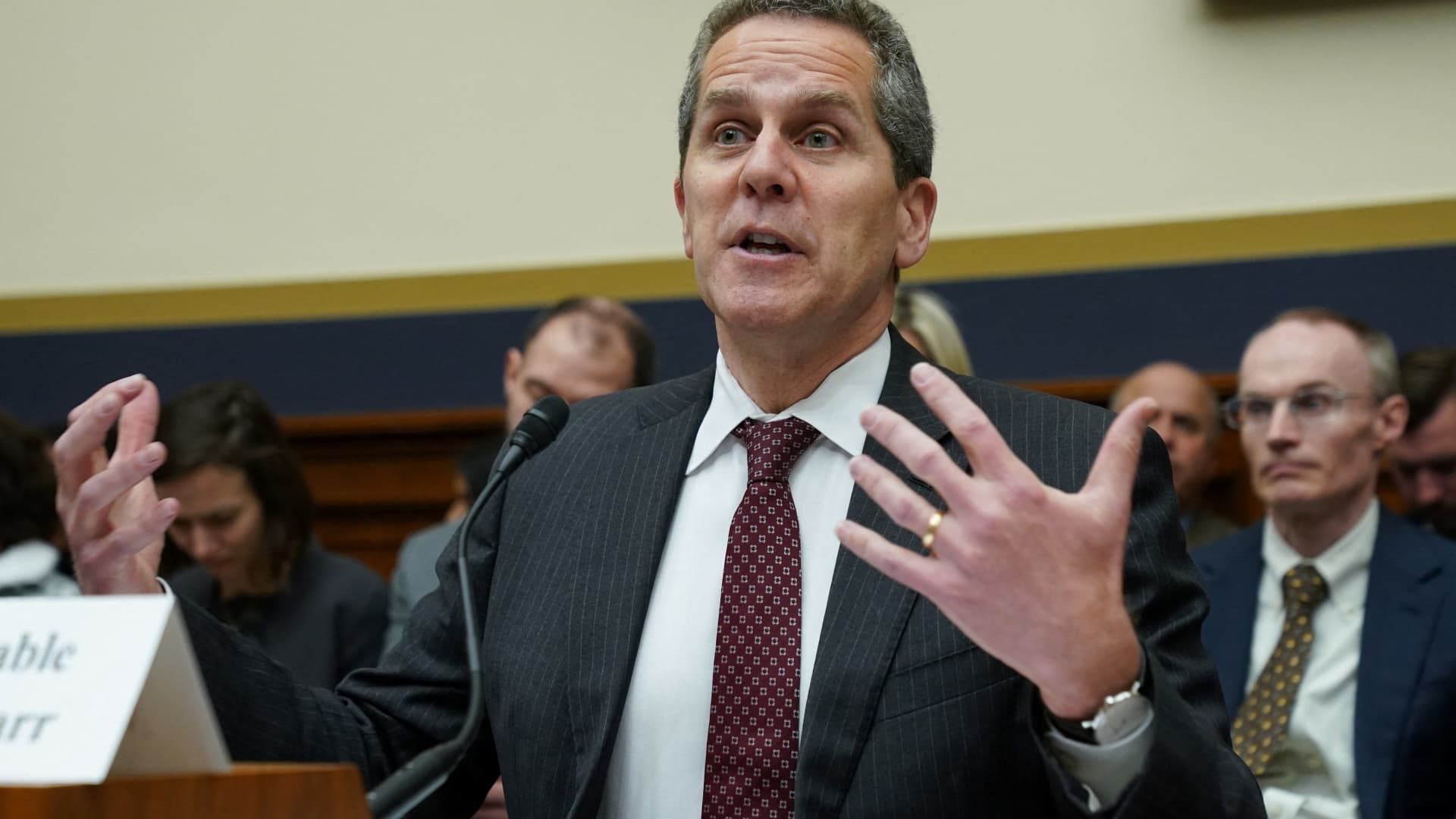Federal Reserve Board Vice Chairman of Supervision Michael Barr testifies before a House Financial Services Committee hearing on the response to the bank failures of Silicon Valley Bank and Signature Bank, on Capitol Hill in Washington, DC, on March 29, 2023.
Kevin Lamarque | Reuters
The Federal Reserve said Wednesday that the largest banks operating in the United States could withstand a severe recession scenario while maintaining their ability to lend to consumers and corporations.
Each of the 31 banks in this year's regulatory exercise cleared the hurdle of being able to absorb losses while maintaining capital levels above required minimums, the Federal Reserve said in a statement.
The stress test assumed unemployment rises to 10%, commercial real estate values fall 40%, and housing prices fall 36%.
“This year's results show that under our stress scenario, large banks would take on nearly $685 billion in total hypothetical losses, yet still hold considerably more capital than their minimum common capital requirements,” said Michael Barr, vice president of supervision of the Federal Reserve. “This is good news and underlines the usefulness of the additional capital that banks have accumulated in recent years.”
The Federal Reserve's stress test is an annual ritual that requires banks to maintain adequate reserves for bad loans and dictates the size of share buybacks and dividends. This year's version included giants like JPMorgan Chase and Goldman Sachscredit card companies, including American Express and regional lenders such as Truista.
While no banks appeared to be seriously affected by this year's exercise, which had roughly the same assumptions as the 2023 test, the group's aggregate capital levels fell 2.8 percentage points, worse than last year's decline.
This is because the industry has more consumer credit card loans and more corporate bonds that have been discounted. According to the Federal Reserve, lending margins have also narrowed compared to last year.
“While banks are well positioned to withstand the specific hypothetical recession we tested them against, the stress test also confirmed that there are some areas to pay attention to,” Barr said. “The financial system and its risks are always evolving, and in the Great Recession we learned the cost of failing to recognize changing risks.”
The Federal Reserve also conducted what it called an “exploratory analysis” of funding strains and a trade crisis that applied only to the eight largest banks.
In this financial year, companies appeared to avoid disaster, despite a sudden rise in the cost of deposits combined with a recession. In a scenario in which five large hedge funds imploded, the big banks would lose between $70 billion and $85 billion.
“The results showed that these banks have significant exposure to hedge funds, but can withstand different types of shocks to their trading books,” the Fed said.
Banks are expected to begin announcing their latest share buyback plans on Friday.









